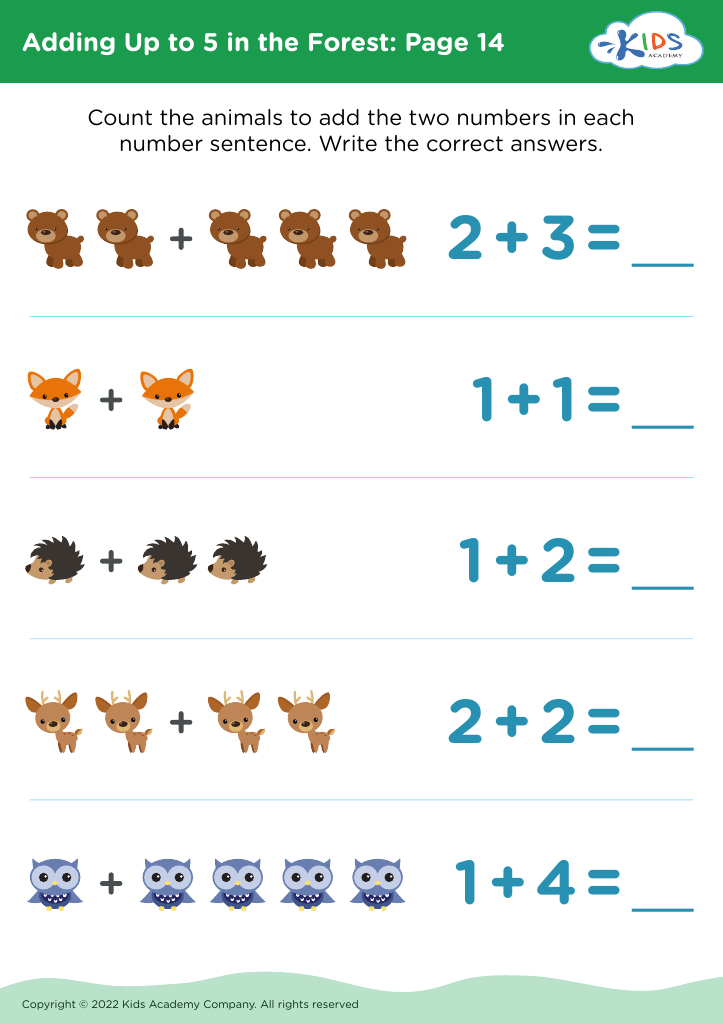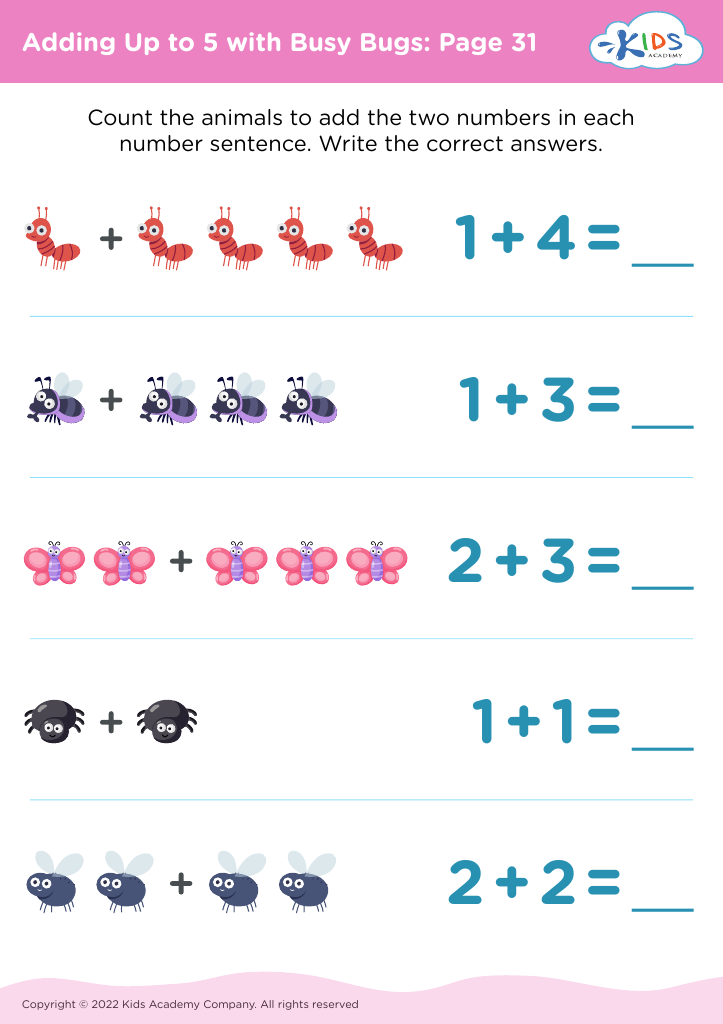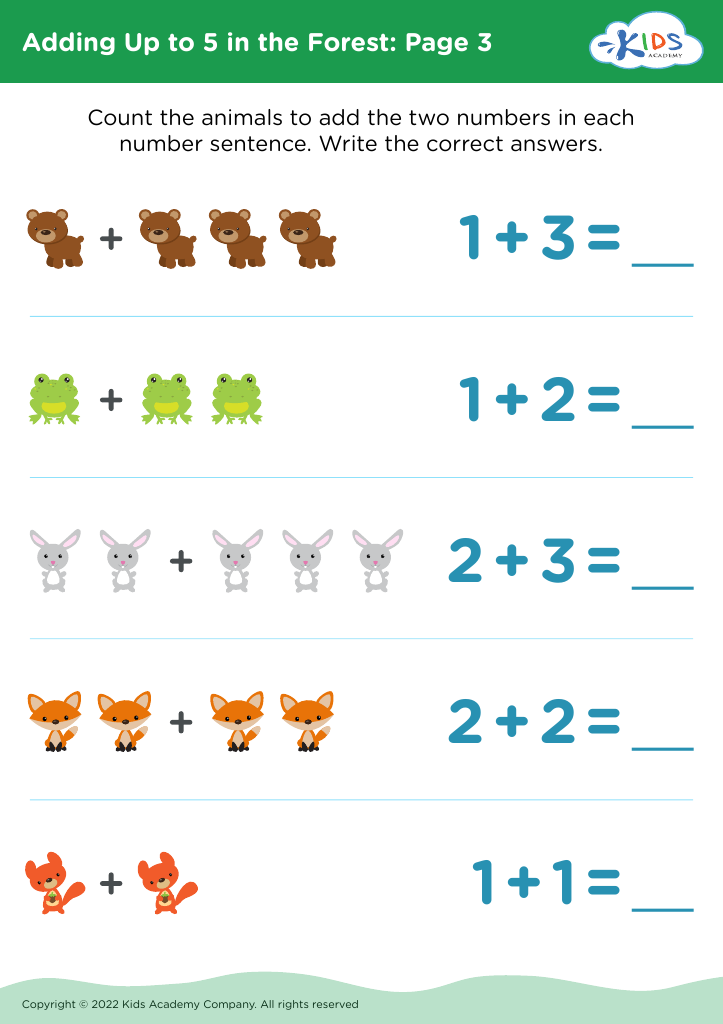Fine motor skills (drawing lines) Addition Worksheets for Ages 3-9
3 filtered results
-
From - To
Enhance your child's fine motor skills with our fun and engaging addition worksheets designed for ages 3-9. These printable resources focus on drawing lines to develop hand-eye coordination and precise control, essential for early learning. Each worksheet seamlessly combines fine motor practice with foundational addition concepts, making math interactive and enjoyable. As children trace and create lines, they sharpen their writing skills while confidently tackling simple addition problems. Perfect for use at home or in the classroom, our worksheets promote active participation and foster a love for learning. Equip your child with the tools for academic success through play and creativity today!
Fine motor skills are crucial for children's overall development, especially between the ages of 3 to 9. These skills involve the coordination of small muscle movements, particularly in the hands and fingers. Drawing lines, an essential fine motor activity, plays a vital role in laying the groundwork for future writing skills. When children practice drawing lines, they are not only developing the dexterity needed to hold a pencil but also enhancing their hand-eye coordination, which is important for countless daily tasks.
Furthermore, fine motor skills are linked to cognitive development. Activities that involve precise movements, such as drawing and cutting with scissors, help improve concentration and problem-solving abilities. Additionally, engaging in these activities boosts confidence and encourages creativity.
Parents and teachers should prioritize fine motor skill development because it significantly impacts children's academic success and self-esteem. Children who struggle with fine motor tasks may face challenges in school, leading to frustration and a lack of motivation. By providing opportunities to practice drawing lines and other fine motor activities, adults can foster a strong foundation for their children's future writing and academic skills, ultimately contributing to a well-rounded education. Investing in these skills early on is an investment in a child’s academic and personal growth.




















